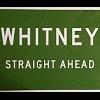It doesn't have to come down to authorised vs dirt-digging. They're just two extreme points on a broad spectrum.
The much-quoted example of an authorised biography not teling the full story is Crombac's book on Colin Chapman. Crombac was a great writer and was close to Chapman and Lotus over many years, and Chapman was a truly fascinating character. But when, in his closing comments at the trial of Lotus FD Fred Bushell, the judge made it clear that if Chapman were alive he would be heading for a substantial custodial sentence, and Crombac doesn't mention the De Lorean affair, you know you're not geting the full picture.
I happen to think family support is a good thing, as you'll gather from my comments above on Adam Cooper's biography of Piers Courage. When I wrote Amherst Villers' biography, I felt very frustrated writing a 5,000+ word chapter on his art, in full knowledge that I wouldn't be able to publish most of the portraits I was writing about. But that was the price I paid for insisting to his daughter that I would have full editorial control over the text. Her brother Charles thinks the book is an accurate portrayal of his father, and that will do for me.
Charles was a bit shocked when he read the F-word coming out of Amherst's mouth. That came from an unimpeachable source and so I had no hesitation in using it. I also explained to Charles that the F-word sometimes escapes my lips, but not generally in front of my kids, and he was content with that. He was more shocked with me asking (on the same page, as it happened) if Amherst and Ray Mays had had a homosexual relationship in the 1920s and '30s. I couldn't hope to answer the question. However, given that Doug had raised the topic of Mays' sexual orientation more than once in his BRM volumes, and readers of my book very probably had those books on their shelves, I felt I had no option but to ask it.
The very term 'dirt-digging' implies the author has decided before he's even started researching that he's going to stick the knife in, and I have no truck with revisionism for revision's sake. I can't actually think of a motor racing example. I've recently read Ranulph Fiennes' biography of Robert Falcon Scott, in which he clearly set out to revise the revisionist position set out by Roland Huntford's book. I won't be reading Huntford's effort, but suffice it to say 12 readers give it five stars on amazon.co.uk, and 12 give it one.
One other thought. A publisher would on balance prefer to sell an authorised biography, because it shifts more copies.
In summary, I read an authorised biography not necessarily expecting to get the whole story. I stay away from dirt-diggers. I prefer to read objective accounts, devoid of any position adopted from the outset.
Edited by P0wderf1nger, 21 June 2010 - 12:47.













